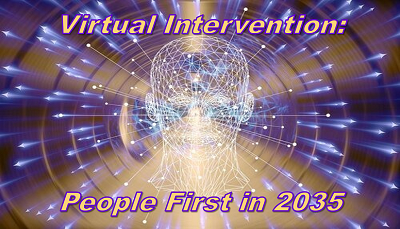[Editor’s Note: In conjunction with the Army People Synchronization Conference later this month, Army Mad Scientist launched a complementary writing contest to support this critical endeavor prioritizing the Army Team (Soldiers, Department of the Army Civilians, their dependents, and Soldiers for  Life). Crowdsourcing remains one of our most effective tools for gleaning innovative ideas, thoughts, and concepts from a wide variety of interested individuals, helping us to diversify thought and challenge conventional assumptions. We were thrilled with the host of insightful 500-word submissions we received — a hearty Mad Scientist “thank you!” to all who participated.
Life). Crowdsourcing remains one of our most effective tools for gleaning innovative ideas, thoughts, and concepts from a wide variety of interested individuals, helping us to diversify thought and challenge conventional assumptions. We were thrilled with the host of insightful 500-word submissions we received — a hearty Mad Scientist “thank you!” to all who participated.
We are pleased to feature the contest’s winning submission by LTC James Leidenberg as today’s blog post. Observing that the Kindergarten Class of 2020 — having been shaped by the Global COVID-19 Pandemic and concurrent social disruption — will be the Soldiers of 2035, LTC Leidenberg makes the compelling case that the Army should reach out and “engage with this Virtual Generation in their spaces to unify and shape them,” proactively promoting our shared values. To do otherwise is to neglect our next generation of Citizen Soldiers, at the Nation’s future peril — Read on!]
The Army knows much about the Soldiers of 2035 because life events shape a Soldier’s identity and values. Assessing the 2020 Kindergarten Class provides  insight into broad social experiences, demographics, economic status, and education backgrounds for those entering service in 2035. New Soldiers in 2035 will come from the “Virtual Generation.” These future Soldiers will need the Army’s support today. Shaped by extreme distrust of government institutions, media, and each other, putting people first for the Soldiers of 2035 begins with tailoring People First Initiatives (PFI) today. Forward-looking PFIs can assess, identify, and develop novel approaches to support their mental health, values-based leadership skills, and ethical technology practices.
insight into broad social experiences, demographics, economic status, and education backgrounds for those entering service in 2035. New Soldiers in 2035 will come from the “Virtual Generation.” These future Soldiers will need the Army’s support today. Shaped by extreme distrust of government institutions, media, and each other, putting people first for the Soldiers of 2035 begins with tailoring People First Initiatives (PFI) today. Forward-looking PFIs can assess, identify, and develop novel approaches to support their mental health, values-based leadership skills, and ethical technology practices.
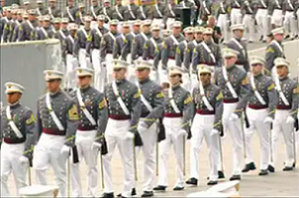 Class of 2035. Imagine May 2035 when thousands tune in to virtual and augmented reality graduation broadcasts. Timelessly, the one-thousand cadets at the United States Military Academy will cross the stage at Michie Stadium at West Point, New York. At that exact moment, graduating classes of Basic and Advanced Individual Training will parade across fields at training bases across the country. The Class of 2035 endured a continuous struggle to reach this point in their lives. They survived multiple Coronavirus pandemics, record-high crime rates, global misinformation campaigns targeting American
Class of 2035. Imagine May 2035 when thousands tune in to virtual and augmented reality graduation broadcasts. Timelessly, the one-thousand cadets at the United States Military Academy will cross the stage at Michie Stadium at West Point, New York. At that exact moment, graduating classes of Basic and Advanced Individual Training will parade across fields at training bases across the country. The Class of 2035 endured a continuous struggle to reach this point in their lives. They survived multiple Coronavirus pandemics, record-high crime rates, global misinformation campaigns targeting American 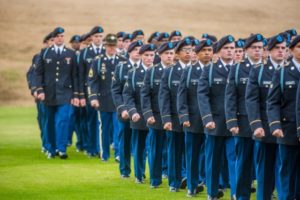 values, and a decade of economic instability. In response, they adapted a sense of isolationism like the post-World War One generation who faced the Spanish Pandemic and Great Depression.
values, and a decade of economic instability. In response, they adapted a sense of isolationism like the post-World War One generation who faced the Spanish Pandemic and Great Depression.
Scars of Distrust. The social upheaval of 2019-2020 left scars that unmasked social and cultural wounds and divided families and friends. Since kindergarten in the first global pandemic of 2020, these new Soldiers and Officers navigated school and extracurricular experiences through the pandemic that forced a type of isolationism upending modern life. No other  generation adapted to social upheaval as well as these young students. In the face of isolation, they connected in virtual spaces in ways that define their entire generation.
generation adapted to social upheaval as well as these young students. In the face of isolation, they connected in virtual spaces in ways that define their entire generation.
Moral and Ethical Disconnect. Enhanced virtual spaces offer an environment that shapes the values and norms of future Soldiers. The richness and realism of the new connected environment introduce them into a world of anonymity 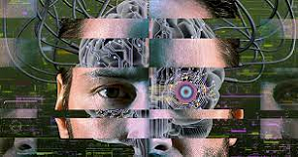 and absence of accountability. In such an environment, there are significant risks of developing characteristics, traits, and normative behavior incongruent with the profession of arms.
and absence of accountability. In such an environment, there are significant risks of developing characteristics, traits, and normative behavior incongruent with the profession of arms.
Opportunity. The Army’s advanced technology to train in virtual and augmented environments offers a competitive advantage. The Army can 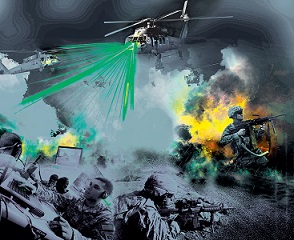 create virtual spaces that entice future recruits to join safe virtual environments. The Army could also host virtual games or partner with game-makers for industry-setting ethics-based “rules of engagement packages” that promote shared values.
create virtual spaces that entice future recruits to join safe virtual environments. The Army could also host virtual games or partner with game-makers for industry-setting ethics-based “rules of engagement packages” that promote shared values.
Today’s experiences will have lasting impacts on the Soldiers of 2035 that require recognition and active responses. For some, these traumatic experiences coupled with emerging technology shape and influence the psychological health of the Soldiers of 2035. The Army must adapt. America’s greatest adversaries seek to manipulate and dissuade our shared values. The Army must engage with the Virtual Generation in their spaces to unify and shape them. If not, others with less noble intentions will.
The Army must engage with the Virtual Generation in their spaces to unify and shape them. If not, others with less noble intentions will.
If you enjoyed this post, check out the following related content:
The Operational Environment (2021-2030): Great Power Competition, Crisis, and Conflict, along with its source document
U.S. Demographics, 2020-2028: Serving Generations and Service Propensity; and The Inexorable Role of Demographics by proclaimed Mad Scientist Caroline Duckworth
The Future of Talent and Soldiers with MAJ Delaney Brown, CPT Jay Long, and 1LT Richard Kuzma and associated podcast ; and The Trouble with Talent: Why We’re Struggling to Recruit and Retain Our Workforce by Sarah L. Sladek
Virtual Nations: An Emerging Supranational Cyber Trend by proclaimed Mad Scientist Marie Murphy; and The Metaverse: Blurring Reality and Digital Lives with Cathy Hackl and associated podcast
Gamers Building the Future Force and associated podcast; A New American Way of Training and associated podcast; Fight Club Prepares Lt Col Maddie Novák for Cross-Dimension Manoeuvre, by LTC(P) Arnel David, U.S. Army, and Major Aaron Moore, British Army, along with their interview in UK Fight Club – Gaming the Future Army and associated podcast
China and Russia: Achieving Decision Dominance and Information Advantage by Ian Sullivan; The Exploitation of our Biases through Improved Technology by proclaimed Mad Scientist Raechel Melling; A House Divided: Microtargeting and the next Great American Threat by 1LT Carlin Keally; The Erosion of National Will – Implications for the Future Strategist by Dr. Nick Marsella; Weaponized Information: What We’ve Learned So Far…; and Insights from the Mad Scientist Weaponized Information Series of Virtual Events
About the Author: LTC James Leidenberg is a Military Intelligence Officer currently completing a Master’s in National Security and Resource Strategy with a Data and Disruptive Technologies concentration at the Eisenhower School at National Defense University. Before Senior Service College, he served as the Senior Intelligence Officer (G-2) for the 1st Cavalry Division at Fort Hood, Texas. He holds an MPA in Policy Management from Georgetown University, an MBA concentrating in Non-Profit Organizations from Liberty University, a current Project Management Professional certification, and a BS in World History from the United States Military Academy.
Disclaimer: The views expressed in this blog post do not necessarily reflect those of the Department of Defense, Department of the Army, Army Futures Command (AFC), or U.S. Army Training and Doctrine Command (TRADOC).

